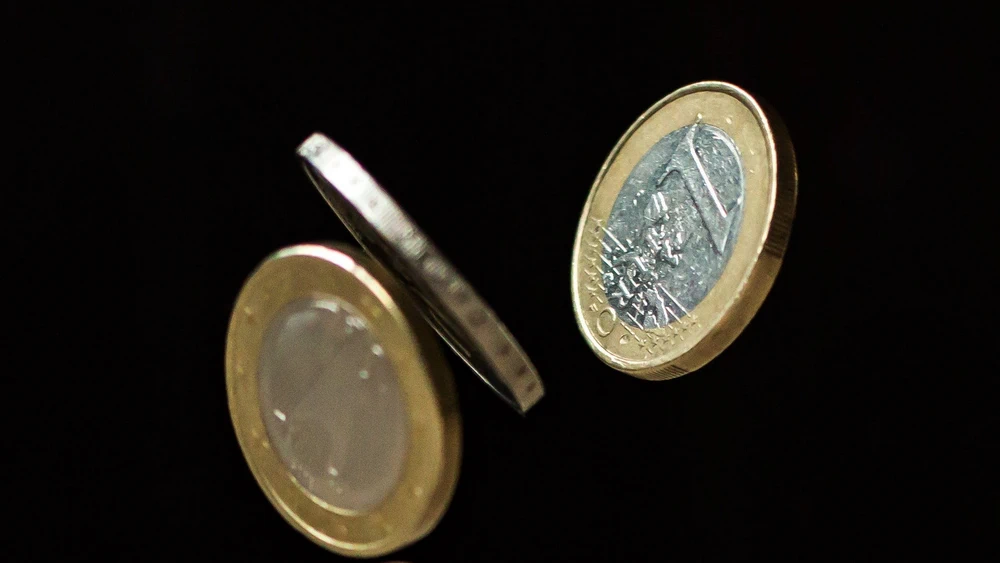Ever read a book or article which discusses prices in pounds and shillings? Read on to work out what they mean in the modern world.
The University of Nottingham has as very useful article and tables of all the common amounts and names. Up until 1968 Australia used the same system of currency. In 1968 Australia (the UK followed in 1971) went decimal where one pound was replaced with two dollars and each dollar is equivalent to 100 cents.
Starting from the pound:
- There are 20 shillings in a pound…
- and 12 pennies in a shilling.
- So a pound is equivalent to 240 pennies.
| Coin | Amount |
|---|---|
| 12d | 12 pennies in one shilling. |
| 1s | One shilling |
| 5/- | Five shillings and zero pence. |
| 20s | 20 shillings in pound, therefore there are 240d in a pound. |
| Coin | Amount |
|---|---|
| ¼ d | Farthing |
| ½ d | Halfpenny, pronounced ‘haypny’. The word often appears in print as ‘ha’penny’ |
| ¾ d | Three farthings |
| 1d | Penny |
| 2d | Two pennies, or ‘tuppence’ |
| 3d | Three pennies. The coin was sometimes referred to as a ‘threepenny bit’. The word was often pronounced ‘thrupny’, or ‘thruppence’ |
| 4d | Groat. This coin was in circulation until 1662, and was revived briefly in the mid-nineteenth century |
| 6d | Sixpence, or ‘tanner’ |
| 1s | Shilling, or ‘bob’, equivalent to 12d. |
| 2s | Two shillings, or ‘florin’ |
| 2s 6d | Half a crown |
| 5s | Crown |
| 10s | Ten shillings, or ‘half sovereign’ |
| £1 | One pound, or ‘sovereign’, commonly called a ‘quid’, equivalent to 20 shillings, or 240d. |
| £1 1s | One pound and one shilling (21 shillings), or ‘guinea’ |
Calculating Inflation
Reading an old book with prices, it’s hard to comprehend the real cost, as things seemed so cheap back then. Inflation has a significant effect on what each currency unit can buy. Inflation is mainly caused by issuing governments to print more money, thereby diluting the value.
One method is to use a standard product such as a McDonald’s Big Mac, which are sold throughout the world. The Big Mac index is useful for comparing currency value between countries and over a period of time.
Another way is to look at gold prices, but this depends not only on inflation but also on the state of the economy. When things look gloomy, gold is a safe haven and it goes up. In better times, people want to spend and gold cannot be exchanged directly for goods and services.
The Pre-Decimal Inflation Calculator from the Reserve Bank of Australia disappointingly does not use actual inflation over time but assumes an average annual inflation rate of 3.8 per cent. Also worth looking at the average wages over time, but this is hard to find.
Actual Cost of Products
The table below illustrates the problem of converting old prices to new. Some products have gone up more than inflation and others less. Train trips are over 300% above inflation and bikes are almost 80% below. Interestingly, gold and bacon have tracked inflation well.
| Description | 1901 prices $ | 1901 prices after inflation $ | 2000 actual prices $ |
|---|---|---|---|
| Average weekly wage, adult males | 4.35 | 217.50 | 830.00 |
| Gold (1oz) | 8.50 | 425.00 | 460.00 |
| Loaf of bread | 0.02 | 1.00 | 2.30 |
| Flour (2kg) | 0.04 | 2.00 | 3.00 |
| Sugar (2kg) | 0.09 | 4.50 | 2.30 |
| Coffee (150g) | 0.05 | 2.50 | 6.00 |
| Tea (180g) | 0.06 | 3.00 | 3.40 |
| Rice (1kg) | 0.05 | 2.50 | 1.65 |
| Butter (500g) | 0.13 | 6.50 | 2.00 |
| Potatoes (1kg) | 0.02 | 1.00 | 1.30 |
| Onions (1kg) | 0.03 | 1.50 | 1.25 |
| Rump steak (1kg) | 0.14 | 7.00 | 12.50 |
| Eggs (1 dozen) | 0.12 | 6.00 | 2.90 |
| Bacon (1kg) | 0.19 | 9.50 | 9.40 |
| Jam (500g) | 0.04 | 2.00 | 2.50 |
| Milk (1 litre) | 0.03 | 1.50 | 1.40 |
| Men’s cotton shirt | 0.85 | 42.50 | 53.10 |
| Men’s trousers’ | 0.50 | 25.00 | 58.50 |
| Women’s shoes (1 pair) | 1.45 | 72.50 | 65.80 |
| Umbrella | 0.40 | 20.00 | 16.50 |
| Rent on 3-bedroom house (1 week) | 1.30 | 65.00 | 250.00 |
| Double bed, mattress, blankets and pillows | 12.10 | 605.00 | 830.00 |
| Train trip | 0.60 | 3.00 | 12.80 |
| Bicycle | 31.00 | 1,550.00 | 320.00 |
| Whisky (1 bottle) | 0.38 | 19.00 | 26.00 |
| Carton of beer (1 dozen 750ml bottles) | 0.70 | 35.00 | 28.00 |
| Packet of cigarettes | 0.05 | 2.50 | 11.20 |
| Soap (600g) | 0.03 | 1.50 | 3.05 |
| Cough medicine (200ml) | 0.25 | 12.50 | 14.90 |
| Daily newspaper | 0.01 | 0.50 | 1.00 |
| New release novel | 0.25 | 12.50 | 45.00 |
| Concert | 0.75 | 37.50 | 39.30 |
| Theatre | 0.35 | 17.50 | 30.90 |
| Game of football | 0.10 | 5.00 | 21.70 |



One thought on “Understanding Pre-decimal Currencies”